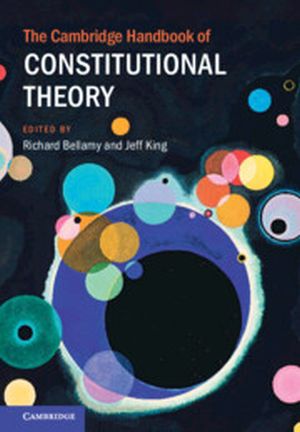
This Handbook brings together contributions from leading scholars of constitutional theory, with backgrounds in law, philosophy, and political science. Its 60 chapters not only offer an exceptional survey of the field but also provide a major contribution to it. The book explores three main areas. Firstly, the values upheld by a constitution, including rights, freedom, equality, dignity and well-being. Secondly, the modalities of a constitutional system, such as the separation of powers, democratic representation, and the rule of law. Finally, the institutions through which it operates, both legal and political; including courts, elections, parliaments and international organisations. It also considers the challenges confronting constitutional arrangements from growing inequality, populism, climate change and migration.